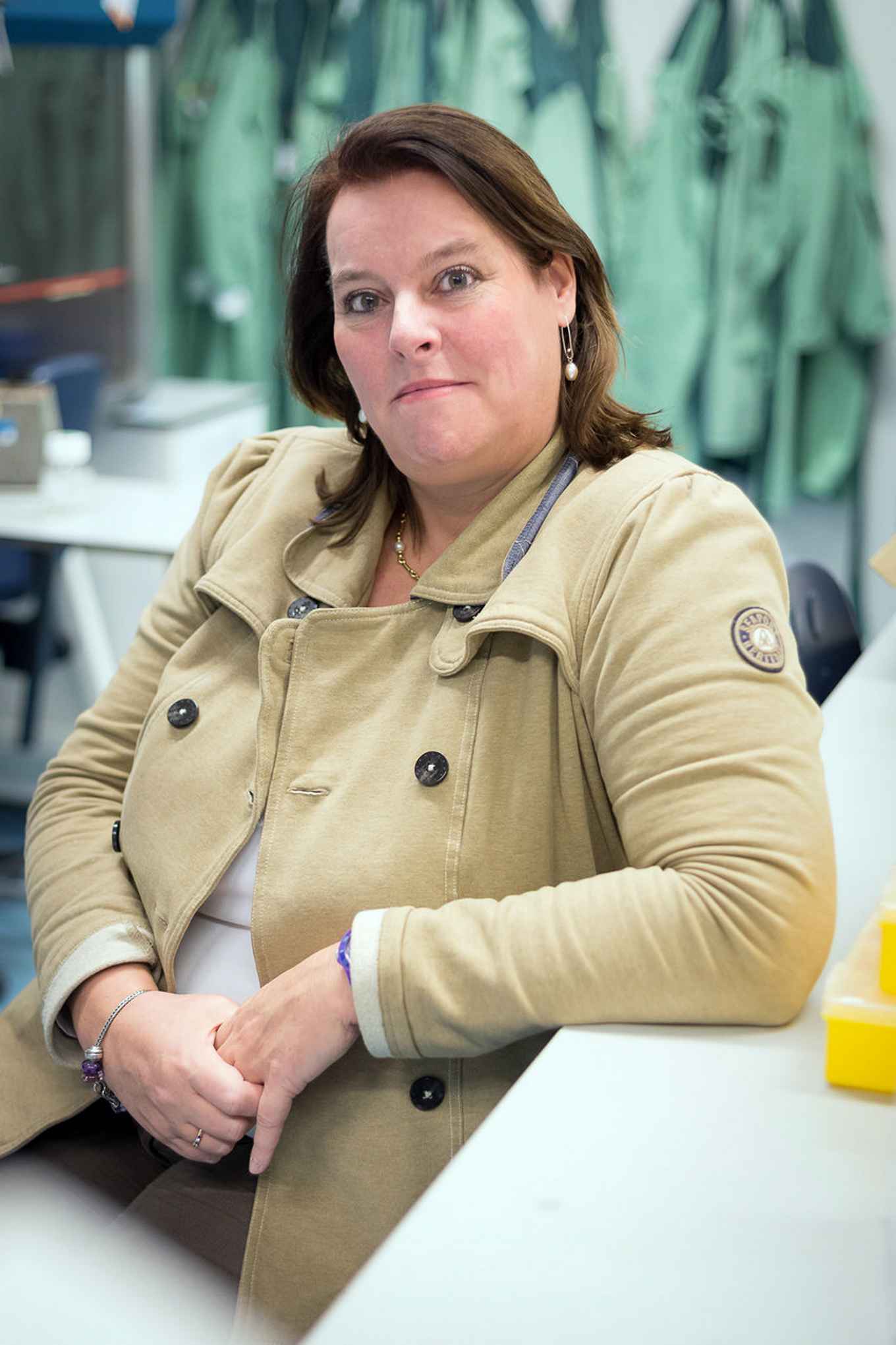Esther de Jong, professor of Cellular Immune Regulation
23 February 2015

Esther de Jong researches the function of human dendritic cells. Dendritic cells are the sentinels of the immune system and are especially present in those parts of our bodies in contact with the external environment, such as the skin, the mucous membranes of the lungs, the intestines, the urinary passages and the genitalia. These cells are specialised in detecting invading pathogens. Whenever a dendritic cell detects a pathogen, it becomes active and begins to migrate to the nearest lymph node where it initiates a specific immune response.
De Jong's work has resulted in the idea that, depending on the type of invading pathogen, dendritic cells induce a specific and polarising immune response primed to eliminate that particular pathogen. Dendritic cells consequently do not exist in homogeneous populations. De Jong's research has demonstrated that the tissue hosting the cells strongly influences their function. For example, the dendritic cells in the outermost layers of the skin (epidermis), the Langerhans cells, are far less responsive to bacteria than the dendritic cells in lower layers of the skin. This is caused by a lack of specific receptors, brought about through the adaptation of the immune system to local circumstances in the tissue. In the case of the skin, this is the presence of normal or 'commensal' bacterial flora which should be left alone.
The downside of a properly functioning immune system is the risk of developing chronic inflammatory diseases, such as allergies and auto-immune diseases. When these conditions occur, the immune system incorrectly responds to harmless substances, such as grass pollen or the body's own proteins, as though they were pathogens. Research into the function of dendritic cells and how they regulate the immune response in both healthy and ill individuals lies at the heart of De Jong's work. Other focus areas of her work are the use of dendritic cells for improving allergy-specific immune therapy for treating and/or preventing allergies, and the suppression of faulty responses by cells in patients who suffer from auto-immune disease.
De Jong has been affiliated with the AMC since 1996 and has served as assistant professor in the Cell Biology and Histology Department since 2007, where she is the principal investigator and heads the research programme Functional Biology of Human Dendritic Cells. De Jong has been awarded a number of research grants, including grants from STW technology foundation and the Netherlands Organisation for Health Research and Development (ZonMW). She has published numerous articles in scientific journals such as Immunity, Blood and Journal of Allergy and Clinical Immunology.